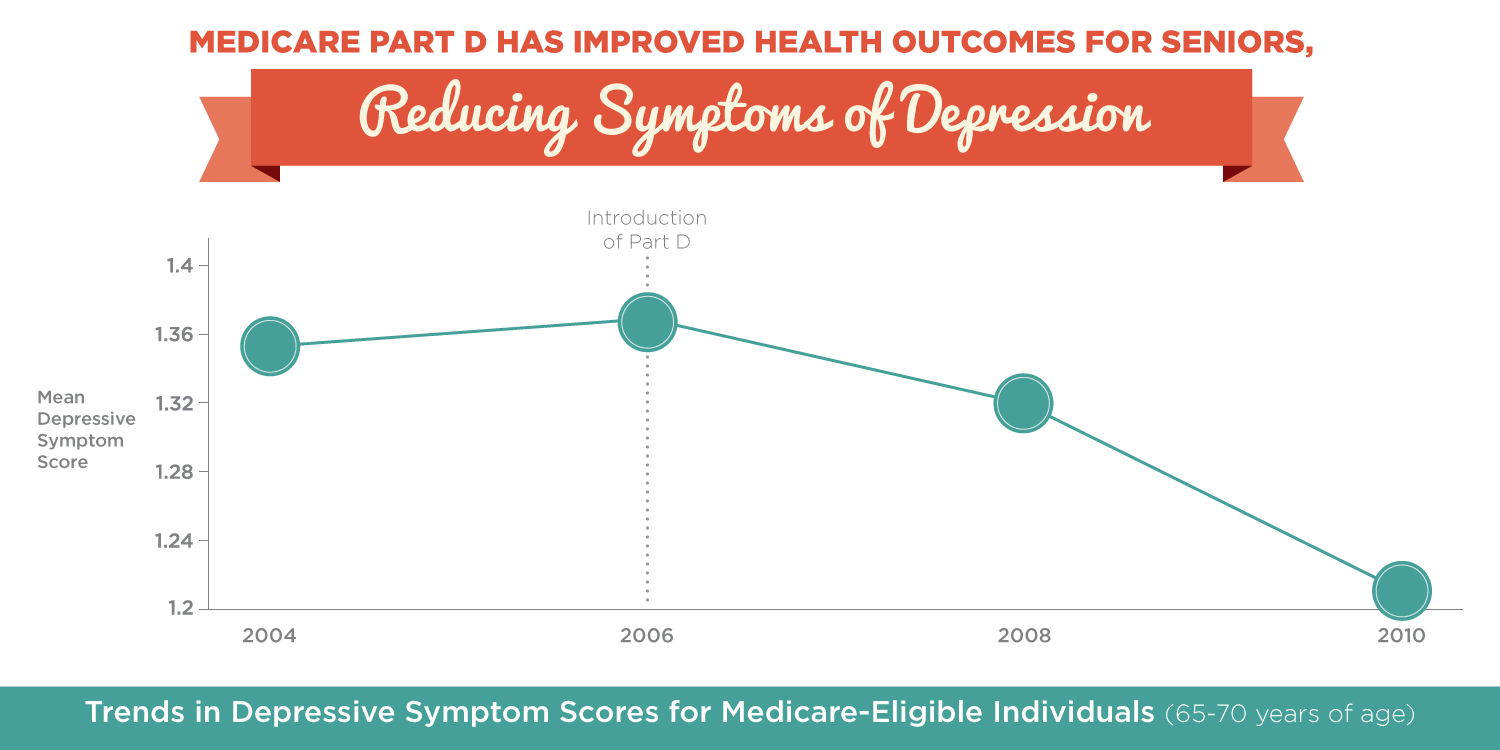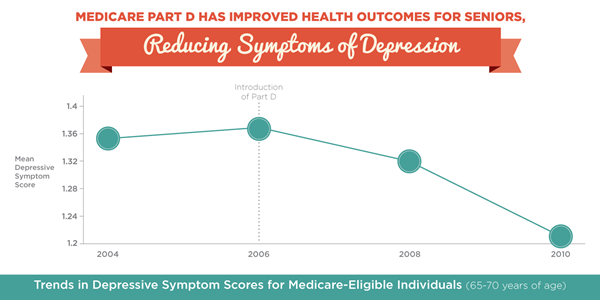 Depression in the U.S. affects more than 6.5 million Americans age 65 and older. The Medicare Part D prescription drug benefit provides seniors and people living with disabilities access to affordable prescription drug coverage, including treatments for depression and related conditions.
Depression in the U.S. affects more than 6.5 million Americans age 65 and older. The Medicare Part D prescription drug benefit provides seniors and people living with disabilities access to affordable prescription drug coverage, including treatments for depression and related conditions.
Recent research published in the Journal of Health Economics looked at how the introduction of Part D coverage increased utilization and adherence of medications to treat mental health conditions among seniors. The research found the program significantly improved health outcomes, reducing depressive symptoms among older adults. Since Part D’s implementation, depressive symptoms in Medicare-eligible individuals decreased dramatically due in large part to greater access to available prescription medicines. The program has further helped patients by reducing cost-related medication non-adherence and burdensome out-of-pocket costs.

Medicare Part D created a competitive marketplace that allows older Americans to access prescription drug coverage. Today, there are more medicines in development to treat depression – 34 – than there were prior to the implementation of Part D. To learn more about Medicare Part D, visit our resource webpage at PhRMA.org/PartD and check back next week for more on Medicare Part D.
Read additional Medicare related posts.
Subscribe to updates [immediate, daily, weekly or monthly] here. {{cta('579cfd36-897d-4d7c-90cd-6ec935ead1f9')}}



 Depression in the U.S. affects more than
Depression in the U.S. affects more than 


